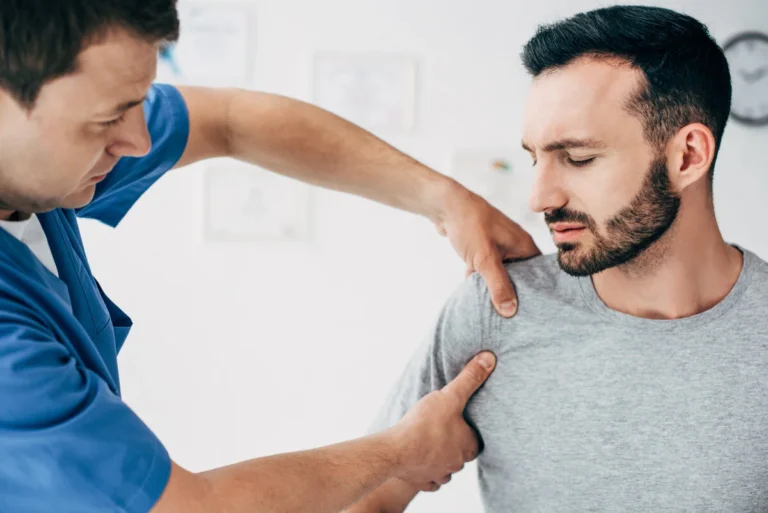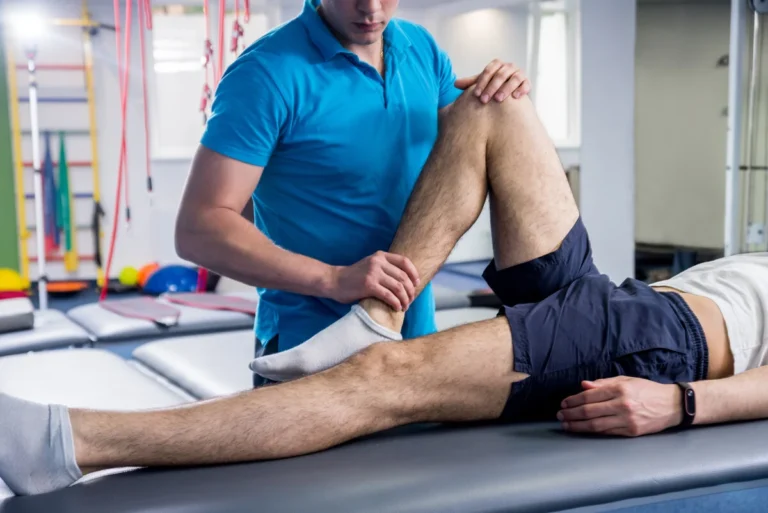How to Get Rid of Knee Pain Quickly: Effective Tips for Fast Relief
Knee pain can be debilitating, but there are several strategies you can use to ease discomfort and regain mobility. Whether your knee pain is due to an acute injury, overuse, or an underlying condition, quick relief is possible with the right approach. Below are some effective methods to help manage knee pain and speed up recovery.
RICE Method (Rest, Ice, Compression, Elevation)
The RICE method is one of the most effective strategies for obtaining quick relief from knee pain. Medical professionals embrace this technique for its straightforward approach to reducing swelling and easing pain. Rest the affected knee by avoiding activities that exacerbate the pain. Applying ice, especially within the first 48 hours of the onset of pain, can significantly decrease inflammation and numb sore tissues, thus providing temporary pain relief. Follow this by wrapping the knee in a compression bandage to help limit swelling and provide support. Finally, elevating the knee above the level of the heart helps to minimize swelling and enhances circulation. However, for chronic knee pain, different strategies are needed to manage long-term discomfort and support knee joints without overexertion.
Book your appointment today at Bull City PT’s Durham – Charlotte – Brier Creek offices.
Gentle Exercises and Stretches
Although it may seem counterintuitive, light movement can actually help ease knee pain and prevent further complications like stiffness or muscle atrophy. Some gentle exercises and stretches can increase blood flow to the area and promote healing.
- Ankle Pumps: Lie down with your legs elevated and gently pump your ankle up and down to help improve circulation.
- Quad Sets: Tighten the muscles on the front of your thigh while keeping your knee straight. Hold for a few seconds and then relax.
- Calf Stretches: Gently stretch your calf muscles to reduce tension around your knee.
These simple exercises can help keep your knee mobile without straining it.
Is It Better To Rest Or Walk With Knee Pain?
Understanding When to Rest
Knowing when to rest your knee is crucial for managing knee pain caused by various conditions. If experiencing acute pain due to injury or strain, initial rest can help prevent further damage. Rest allows your body’s natural healing processes to work without additional stress. However, prolonged inactivity may lead to stiffness, muscle atrophy, or joint immobility.
Benefits of Gentle Walking and Low-Impact Exercises
For many individuals, incorporating gentle walking and low-impact exercises can be beneficial. Activities like swimming, cycling, or seated exercise can improve circulation, reduce stiffness, and boost joint function. Walking, in particular, is a low-impact exercise that helps maintain mobility and strength, although it should be done with caution and, if needed, supportive gear. High-impact activities, such as running and jumping, should be avoided as they can worsen pain.
Balancing Activity and Rest
Striking a balance between activity and rest is essential. Alternating rest with a gradual increase in activity levels allows muscles and joints to strengthen over time. Monitor pain levels and adjust activities accordingly. Consulting with a physical therapist at Bull City PT can provide you with personalized plans to manage knee pain effectively. Targeted exercises can help relieve knee pain caused by specific conditions such as osteoarthritis, patellofemoral pain syndrome, and chronic degenerative meniscal tears.
Advisory for Knee Pain in the Elderly
The elderly should take special care in managing knee pain due to differing needs and higher risks of other health conditions. Guided exercises that focus on balance and strength can prevent falls and injuries. Physical therapists can offer advice tailored to older adults’ mobility and pain management needs, aiding in maintaining a good quality of life.
How Long Does It Take For Knee Pain To Go Away?
Knee pain is a common complaint that can affect individuals of all ages. The duration of knee pain largely depends on its underlying cause, severity, and how promptly it is addressed. Understanding these factors is crucial for effective management and achieving long-term relief. Physical therapy for knee pain may be the best solution!
Factors Affecting Recovery Time for Chronic Knee Pain
The recovery time from knee pain can vary greatly based on several factors. For instance, the nature of the injury or the underlying condition, the individual’s age, overall health, and how quickly they start receiving treatment can significantly influence healing times. For minor injuries, such as a mild sprain, a few weeks of rest and rehabilitation may suffice. However, more severe conditions like ligament tears or degenerative diseases could require months of treatment.
Typical Healing Timelines for Different Causes
For acute injuries, such as strains or sprains, recovery may take from days to several weeks. These conditions often improve with adequate rest, icing, and physical therapy. Chronic issues, such as arthritis, represent a more prolonged journey, where ongoing management rather than a complete cure is often the focus. Chronic issues like rheumatoid arthritis often require ongoing management due to symptoms like swelling and stiffness in the joints, particularly in the morning. Surgery for severe injuries, such as ACL tears, often involves a rehabilitation period that can span from six months to a year.
Role of Consistent Physical Therapy and Exercises
Engagement in a consistent therapy regimen can markedly enhance the recovery speed of knee pain patients. Physical therapy plays a vital role in strengthening thigh muscles, improving joint flexibility, and reducing pain. Exercises tailored by a physical therapist specifically for your condition can significantly impact the healing process, ensuring that the pain does not become a long-term issue.
When to Seek Professional Medical Advice
If knee pain persists beyond a few weeks or is severe from the onset, it is essential to seek professional medical advice to learn what causes knee pain. Early diagnosis and intervention by experts, like those at Bull City PT, can prevent further damage and lay the foundation for optimal recovery.
Don’t let knee pain linger and disrupt your daily life. At Bull City PT in Brier Creek, we specialize in creating tailored recovery plans that address your specific needs and ensure a quicker return to health. Our advanced therapy techniques and personalized care deliver results you can trust. Book your appointment today to start your journey to a pain-free future.







